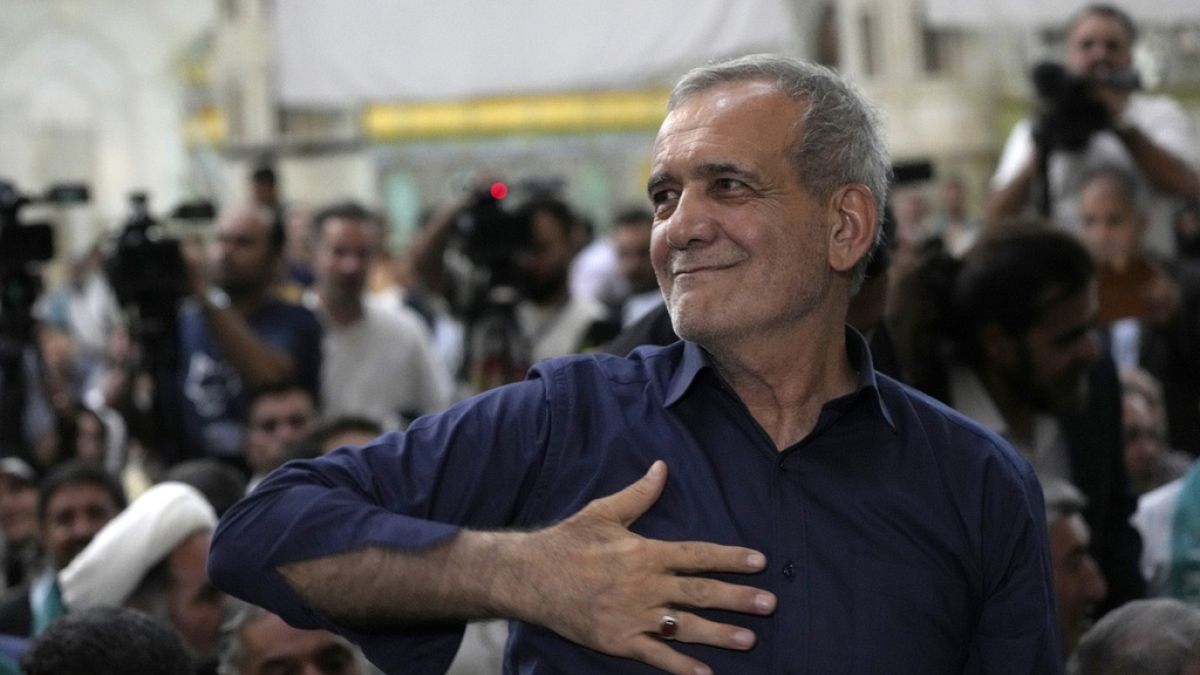After years of sanctions and protests, Iran has elected a new reformist president, Masoud Pezeshkian. Despite hopes for dialogue with Western powers, Pezeshkian is not expected to make radical changes to Iran’s Shiite theocracy. As a signal of his intentions, Pezeshkian visited the mausoleum of Ayatollah Khomeini, the leader of the 1979 Iranian Revolution, after his election victory. This move suggests a conservative stance on his part.
Pezeshkian faces a challenging task of succeeding President Ebrahim Raisi, who died in a helicopter crash in May. The new president will need to navigate a government still dominated by hardliners and address ongoing tensions between Israel and the Gaza Strip. Additionally, nuclear diplomacy remains a critical issue, with concerns about Iran’s enriched uranium reserves exceeding agreed limits.
The EU has taken a firm stance against Iran’s nuclear ambitions and imposed sanctions in response to proliferation activities. Professor Golpour emphasizes the urgent need for the EU and other key players to address the looming threat of Iran potentially acquiring nuclear weapons. Collaborative efforts with the US, Saudi Arabia, Turkey, and other Middle Eastern countries are seen as essential to resolving these issues.
Human rights violations in Iran have also drawn international concern, leading to EU sanctions. The death of Mahsa Amini in police custody and repression of political protests have sparked calls for increased dialogue on individual and civil rights violations. The president-elect has promised greater flexibility on the headscarf law, but more significant actions are urged by experts.
Iran’s involvement in regional conflicts, such as launching attacks on Israel and supporting militia groups like Hezbollah and Houthi rebels, has further complicated its relations with the EU and other Western powers. The EU has sanctioned Iran for supplying drones to Russia, which have been used in Ukraine’s war. Calls for peace and neutrality in the region have been made, with demands for Iran to halt support for proxy groups.
Overall, the EU’s relationship with Iran remains complex due to nuclear concerns, human rights violations, and regional conflicts. While the election of a reformist president may signal some potential for dialogue, concrete actions and collaboration with key stakeholders are essential to address the pressing issues at hand. The EU must continue to uphold its values and push for transparency and dialogue on rights violations while working towards peace and stability in the region.










